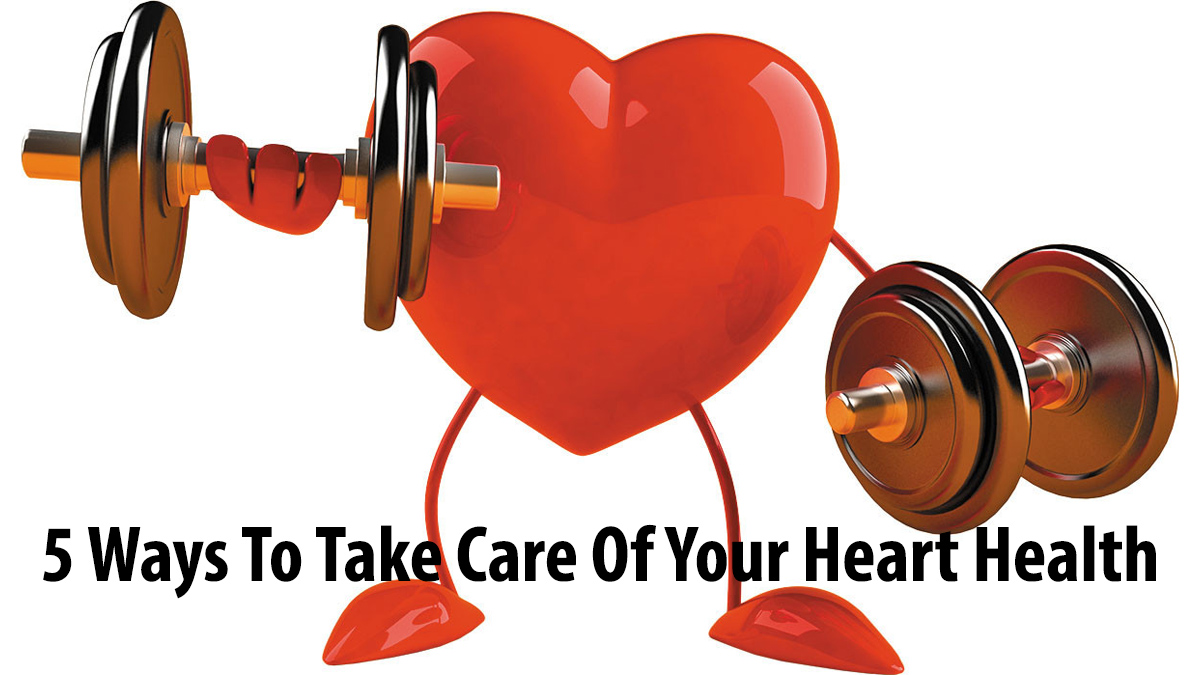If you want to protect your heart from cardiovascular diseases, you must do several things to ensure it’s in good shape. A number of lifestyle changes can help you live a healthier life, such as eating a healthy diet, controlling cholesterol, and drinking enough water. The next five steps are particularly important. You should also exercise and get regular checkups to make sure you’re not suffering from any heart problems.
Here are 5 Ways To Take Care Of Your Heart Health:
Eat healthily
The American Heart Association says that eating a healthy diet is essential to heart health. Studies show that certain foods can affect cholesterol, blood pressure and triglycerides. Inflammation is a major cause of heart disease, so eating a well-balanced diet is crucial to reducing your risk. Leafy green vegetables are rich in vitamin A, C and E. They also contain vitamin K, which promotes proper blood clotting.
Heart disease is the leading cause of death in America, and many of these deaths can be prevented if you make the right food choices. While age, gender and family history are not under your control, lifestyle changes and medication can help you reduce your risk of heart disease. You can get free health tips and advice to make healthy choices. They’ll also provide you with expert advice on how to manage your health.
You can minimize the amount of saturated fat in your diet by cutting out meat and dairy and replacing them with plant-based sources of fat. Instead of butter on your toast, try guacamole on tacos or a teaspoon of oil on vegetables. Avoid foods high in trans fats, which are commonly found in deep fried foods. Trans fat is the worst type of fat and lowers HDL (good cholesterol) levels in the blood. Although there is no recommended amount, any amount of trans fat is not healthy.
Control cholesterol
In order to lower your cholesterol, you can choose foods rich in soluble fiber or unsaturated fats. Soluble fiber comes from fruits, vegetables, and whole grains. Avoid trans fats. And make sure that your diet is low in red meat and saturated fat. These types of fat are often found in fast foods, fried foods, and convenience foods. You should try to replace them with heart-healthy fats in your diet.
Another easy way to lower your cholesterol is to increase the amount of fish you eat. Fish is a good source of omega-3 fatty acids and is low in saturated fat. These fats are good for your heart, as they increase your HDL levels. You can choose oily fish, shellfish, and cod at least two times a week. You can also enjoy tuna steaks or halibut once or twice a month.
Dietary cholesterol is naturally present in foods, such as meat, poultry, eggs, and full-fat dairy products. Foods high in saturated fat can increase your cholesterol levels, but they are not the main source of cholesterol. Foods high in trans fat, on the other hand, are also bad for your heart. Those containing trans fat, which are found in processed foods, can also increase your cholesterol. And drinks with high levels of saturated fat, such as soda, and sugary desserts can increase your risk of cardiovascular disease.
Reduce salt intake
A recent study found that people who consumed the lowest sodium levels were at a higher risk for cardiovascular disease and stroke. While the American Heart Association recommends a salt intake of at least two grams per day, the World Health Federation recommended lowering the sodium intake to less than five grams per day. There are two levels of sodium intake: too much salt and too little salt. For the most part, the two levels are roughly equivalent.
While many organizations advise people with heart failure to reduce their salt intake, there is limited evidence to support the claim. A large randomized trial was conducted to investigate the role of sodium in heart failure, and it involved nearly 800 participants in six countries. Compared to those with normal heart failure, patients undergoing a low-salt diet experienced higher mortality rates and worse nutritional status. However, there are also a number of concerns about the long-term health consequences of limiting salt intake.
Although these results are promising, they are not definitive. The lack of randomized trials has led to some questions. Observational studies have also suggested that the trends observed may be due to factors associated with salt intake, such as unhealthy diets. In addition, individuals with lower sodium intakes may also be undernourished, leading to an impression that their salt intake is low. Thus, reducing salt intake is an important way to promote cardiovascular health.
Take a lot of water
Drinking plenty of water is beneficial for your heart. It is the largest component of the human body, making up 50 to 80 per cent of the total volume. Water has important roles in most bodily functions, including heart health. Proper hydration can increase the heart’s capacity to pump blood. Because the heart beats seven times a minute and pumps seven thousand litres of blood a day, it needs a constant supply of water. Staying hydrated helps the heart perform its job better. Better hydration can also make your muscles work more effectively.
Dehydration increases the heart’s workload, putting strain on it. This causes the heart to pump blood harder. Blood pressure rises when the heart has to pump harder and use more force to deliver the necessary oxygen to the rest of the body. Dehydration can also increase the heart rate and cause palpitations. All of these factors contribute to the heart’s increased workload. Make sure to drink plenty of water, and you’ll be on the right track to heart health.
Aside from staying healthy and vital, drinking enough water is also a simple way to stay hydrated. Water has so many health benefits, including improving circulation and lowering blood pressure, which may help prevent heart failure. In addition to water, other fluids such as coffee, tea, and sports drinks are excellent sources of hydration. Keeping yourself hydrated will help your heart by preventing many heart diseases.
Avoid skipping meals
Eating small frequent meals is an important part of a healthy diet. Skipping meals can lead to nutritional deficiencies. Skipping meals means missing out on essential nutrients. According to a recent study by the UMass Medical School, those who skip breakfast had lower levels of thiamin, niacin, and folate in their diets. However, they consumed more fiber and less fat and sugar. Therefore, skipping meals may be detrimental to your heart.
Another study linked skipping breakfast to heart attacks in people who were at high risk of death. It looked at the eating habits of over 6,500 adults aged 40 to 75. It followed people for 17 years. The results showed that those who had never eaten breakfast were at a four to five-fold greater risk for death, another heart attack, and chest pain. The researchers also found a connection between skipping breakfast and high blood pressure in other study participants.
Studies examining the association between skipping breakfast and the risk of cardiovascular disease (CVD) and death (all-cause death) have mixed results. In men, skipping breakfast has been linked to an increased risk of cardiovascular disease (CVD), while skipping lunch and dinner does not appear to have any effect on mortality. However, studies on women found no such link. The findings of these studies suggest that the risk of CVD and death may be lower than previously thought.
The Bottom Line
Taking care of your heart is essential to your overall health. Not only does it power the circulatory system, but it also supplies nutrients to your cells. So, it only makes sense to protect it as much as possible. February is heart health month, and there are many ways to do so. Listed below are a few tips for staying healthy. Read them to learn how to keep your heart healthy this month.
Make an effort to eat a heart-healthy diet. Start by reducing your intake of salt, saturated fats, trans fats, and added sugars. Cut out alcohol and processed food, and replace sugary snacks with fresh fruits. Try to eat three to five servings of vegetables and fruits each day, and you’ll be putting yourself on the road to better heart health in no time.
Get regular blood pressure and blood sugar checks. Although some people do not exhibit symptoms of high blood pressure, this condition can harm your heart. If you’re concerned about any behavioural risk factors, talk to your health worker about making dietary and lifestyle changes to help reduce your risk. Also, be sure to take any medicines your doctor prescribes regularly. In addition, you should try to reduce your intake of salt and alcohol.
You may be interested in : An Informative Guide to Type 3 Diabetes

